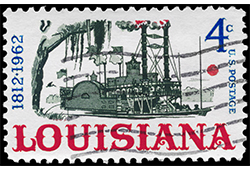 On September 28, 2020, Judge Martin C. Feldman of the United States District Court for the Eastern District of Louisiana issued an important decision that could impact Telephone Consumer Protection Act (TCPA) litigation involving alleged robocalls across the United States. See Creasy v. Charter Commc’ns, Inc., No. 20-cv-1199, 2020 WL 5761117, at *2 (E.D. La. Sept. 28, 2020). Specifically, Judge Feldman ruled that the TCPA provision banning robocalls, 47 U.S.C. § 227(b)(1)(A)(iii), was unconstitutional in its entirety during the roughly five-year period beginning in November of 2015, when Congress amended the TCPA to create a government-debt exception to the robocall prohibition, through July 6, 2020, when the United States Supreme Court declared the government-debt exception unconstitutional and severed it from the rest of the statute in Barr v. American Association of Political Consultants, Inc, 140 S. Ct. 2335 (2020). Judge Feldman explained as follows:
On September 28, 2020, Judge Martin C. Feldman of the United States District Court for the Eastern District of Louisiana issued an important decision that could impact Telephone Consumer Protection Act (TCPA) litigation involving alleged robocalls across the United States. See Creasy v. Charter Commc’ns, Inc., No. 20-cv-1199, 2020 WL 5761117, at *2 (E.D. La. Sept. 28, 2020). Specifically, Judge Feldman ruled that the TCPA provision banning robocalls, 47 U.S.C. § 227(b)(1)(A)(iii), was unconstitutional in its entirety during the roughly five-year period beginning in November of 2015, when Congress amended the TCPA to create a government-debt exception to the robocall prohibition, through July 6, 2020, when the United States Supreme Court declared the government-debt exception unconstitutional and severed it from the rest of the statute in Barr v. American Association of Political Consultants, Inc, 140 S. Ct. 2335 (2020). Judge Feldman explained as follows:
Congress’s 2015 enactment of the government-debt exception rendered § 227(b)(1)(A)(iii) an unconstitutional content-based restriction on speech. In the years preceding Congress’s addition of the exception, § 227(b)(1)(A)(iii) did not discriminate on the content of robocalls, and was, as the Supreme Court has observed, a constitutional time-place-manner restriction on speech. Likewise, now that [American Association of Political Consultants] has done away with the offending exception, § 227(b)(1)(A)(iii) figures to remain good law in the years to come. However, in the years in which § 227(b)(1)(A)(iii) permitted robocalls of one category of content (government-debt collection) while prohibiting robocalls of all other categories of content, the entirety of the provision was, indeed, unconstitutional.
Creasy, 2020 WL 5761117, at *2. Out of the 130 TCPA violations alleged by Plaintiff Creasy, Judge Feldman found that the court lacked subject matter jurisdiction in 129 of them (only one violation allegedly occurred after July 6, 2020) because “federal courts lack authority to enforce violations of unconstitutional laws.” Id. at *2-3. Accordingly, he granted the defendant’s motion to dismiss with respect to all TCPA violations alleged to have occurred prior to July 6, 2020. Id. at *8.
Judge Feldman’s opinion is likely to figure prominently in TCPA lawsuits involving unsolicited automated calls and texts made between November 2015 and July 2020. By framing his ruling in terms of subject matter jurisdiction—which must be present at all stages of litigation and cannot be waived—the opinion provides TCPA defendants in active litigation an avenue to immediately challenge allegedly unlawful robocalls made during the November 2015 to July 2020 period, regardless of the procedural posture of the case. Given the TCPA’s four-year statute of limitations, this argument is likely to be available in a significant number of active cases involving unsolicited automated calls and texts. For its clients involved in TCPA litigation, Goodwin is monitoring whether Judge Feldman’s opinion is adopted by other federal courts.
